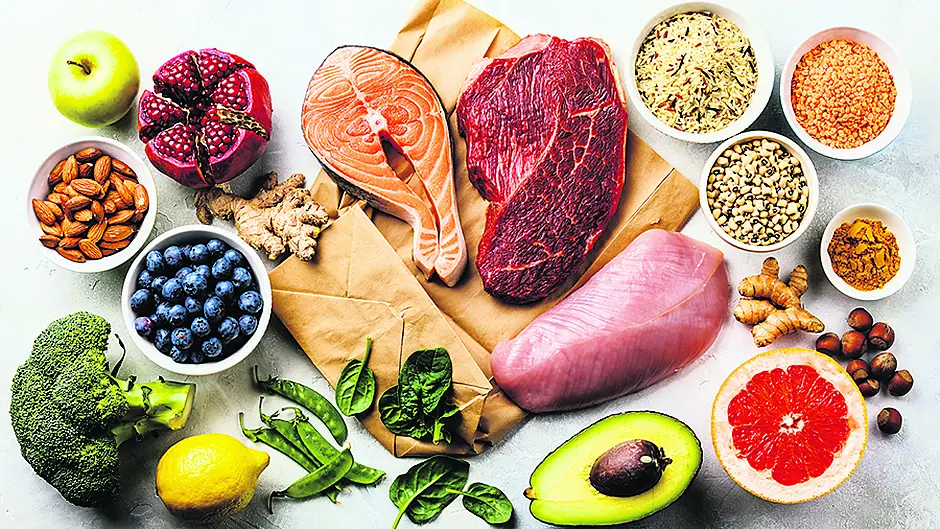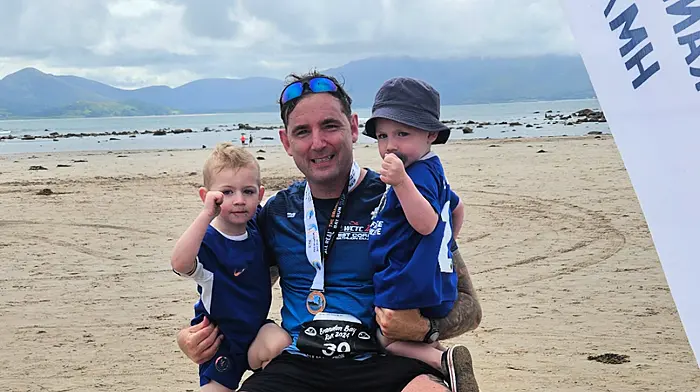Breast cancer will affect one in nine women during their lifetime, though survival rates are on the increase
Health & Nutrition with Rosie Shelley
BREAST cancer will affect one in nine women during their lifetime, though survival rates are on the increase. The annual awareness campaign of this month stresses that only around 5% of cases are hereditary, while an estimated 42% are due to lifestyle and dietary choices.
The main consideration is that breast cancer risk is related to the interplay between inflammation—which stimulates the growth of blood vessels that channel nutrients into fledgling tumours - and the agents that cause it, so here I’ve taken a look at those factors and how to reverse them.
• Eating too much red meat: Once a week is fine, and a good source of various nutrients, but In August, scientists found that replacing it with more poultry can cut their risk of breast cancer by 28%.
• Eating non-organic fruit, veg and meat: Going organic has been shown to reduce the risk by 21%.
• Unopposed oestrogen (around 70% of cases are hormone sensitive): To help expel excess oestrogen eat plenty of fibre, cruciferous veg (kale, broccoli, cabbage etc), the red/purple yellow/orange family of and veg and low sugar fruits. Eating these foods regularly lowers your risk by up to 50%.
Avoid hormone disruptors in excess non-organic meat, plastic food wrappings/bottles, and mainstream deodorants and hair dyes (some commercial brands raise breast cancer risk by 23%), and eat plant oestrogens (phytoestrogens) that can restrict the activities of human oestrogens. These are found in alfalfa, red clover, celery, pulses, wholegrains, and especially fermented soya products.
• Excess weight: one in 10 breast cancer cases are now linked to obesity. Fat cells actually manufacture oestrogen and release gene damaging inflammatory chemicals, while losing weight can slash breast cancer risk in half. Research suggests that even in slim women eating energy-dense junk foods raises the incidence of cancer.
And separately that women who ate a pro-inflammatory diet (high in sugar, sweeteners and soft drinks, refined grains, processed meats and transfats) in their younger years had a 41% increased risk.
In August, the World Health Organisation published a review showing that being obese is far more of a risk factor than was previously believed.
And as for those soft drinks, this July researchers found that women drinking 200ml a day—even of fruit juice—had a 22% increased risk. Last month it was reported that artificially sweetened drinks affect the balance of gut bacteria to an extent that they can reduce resistance to cancers of the breast (and colon).
Cut sugar and refined grains rather than healthy fats, which are needed for hormone balance (avoid inflammatory transfats, which double the risk).
Women eating the most carbs had 2.2 times the risk, but including plenty of fibre (from veg, pulses and oatmeal) lowers it significantly. The 5:2 diet, where you severely restrict calories two days a week, has been shown to lower risk by starving breast cells of the glucose that feeds cell division and tumour growth. Another option is to ‘fast’ for as long as possible overnight. For breast cancer survivors, this resulted in a 64% lower risk of recurrence.
• High insulin levels: eating sugar and all carbohydrates releases insulin, which feeds tumours and inflammation, and high levels are associated with a 300% higher risk as well as a worse prognosis for those diagnosed.
The role of regular exercise is vital, reducing risk by 30% because it helps lower insulin and oestrogen levels, controls weight and inflammation and helps you get to sleep, which is when cancer-targeting immune cells are created.
Two studies also found that 150 minutes activity a week is the single most important measure for slashing - almost in half - the risk of breast cancer returning.
• A lack of the good kind of gut bacteria, which is anti-inflammatory and immune system balancing and helps remove oestrogen: take a probiotic, and eat plenty of fibre and fermented foods. Four weekly servings of sauerkraut reduced breast cancer risk by 74%.
• A lack of anti-inflammatory nutrients, namely vitamin D and omega 3 oils, both of which are found almost uniquely in oily fish (omega 3s also starve cancer cells, and those eating the most have a 29% lower risk of dying from breast cancer), as well as vitamin C and quercetin found in fruit and veg, and the spices ginger, chilli, and turmeric which actually helps ‘reset’ the genes involved. Six times more cancerous cells were killed in mice being fed broccoli with turmeric.
While low levels of vitamin D, which activates the immune system against abnormal cells, were shown to raise the risk by an alarming 354%, a Mediterranean style diet lowers it by 68%. Olive oil (don’t fry with it) is anti-inflammatory and has a tumour suppressing action.
•A lack of calcium (nuts and seeds, leafy greens, tinned fish, wholegrains, fermented soya, dairy): two servings of nuts a week lower risk by 36%.
•A lack of the antioxidants that counteract free radicals which cause inflammatory genetic damage to cells: found in all plant foods, and especially in the green and brightly coloured vegetables already mentioned as well as sulphur-rich foods (onions and garlic, beans, eggs), tea (37% lower risk) and green tea, cocoa and coffee (19% lower risk), these plant chemicals help to prevent tumour formation and have in some cases the ability to actively target and destroy cancerous cells. Apigenin in chamomile tea, parsley and many fruit and vegetables aid in the destruction of tumour cells; betanin in beetroot slow their growth.
•Staying up late: scientists found that women who were early to bed and early to rise were up to 48% less at risk. Eating late at night plays a role here too—they’re both hormone disruptors.
For anyone undergoing treatment, a recommended book is Everyday Strength: Recipes and Wellbeing Tips for Cancer Patients, available from Amazon.
Best Supplements include:
Omega-3/cod liver oil (if you can’t regularly eat oily fish), vitamins D3 and C, turmeric, and a good probiotic such as BioKult.







